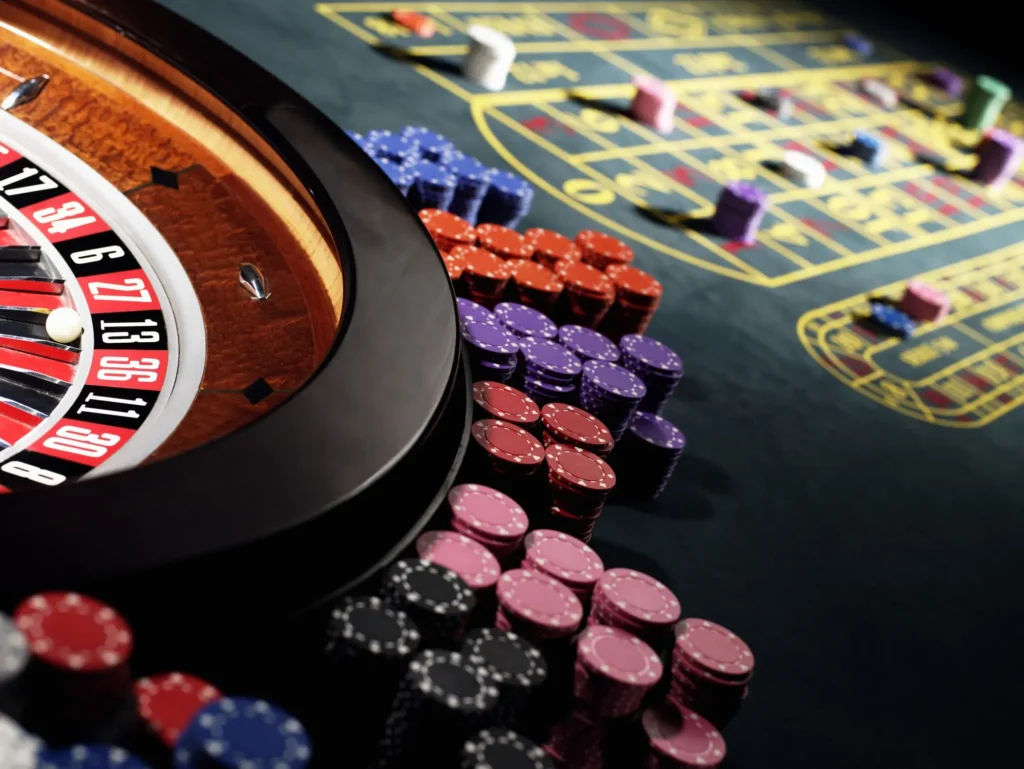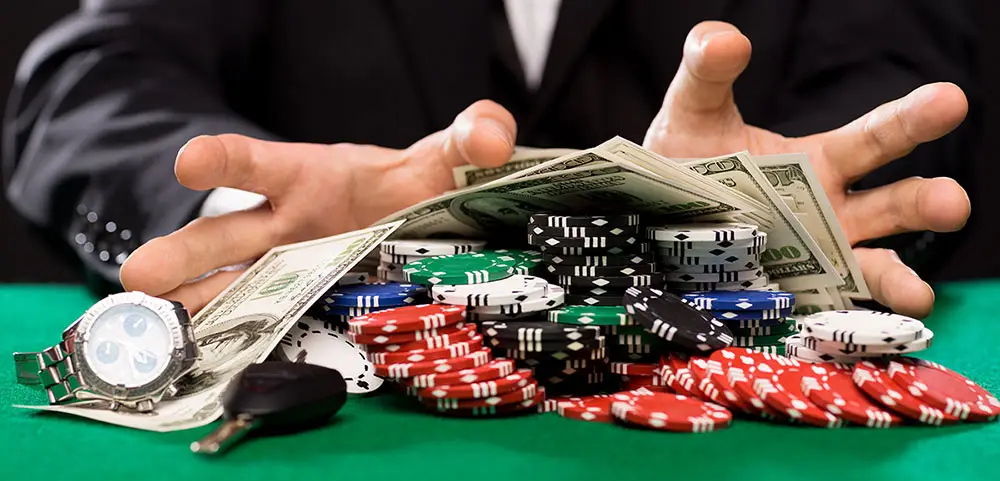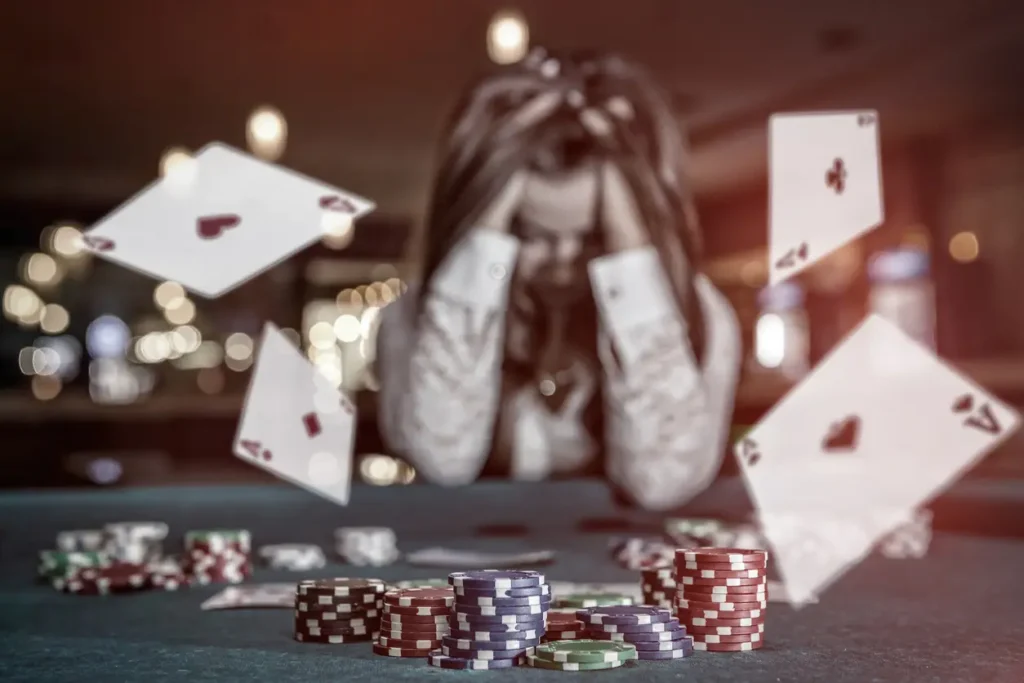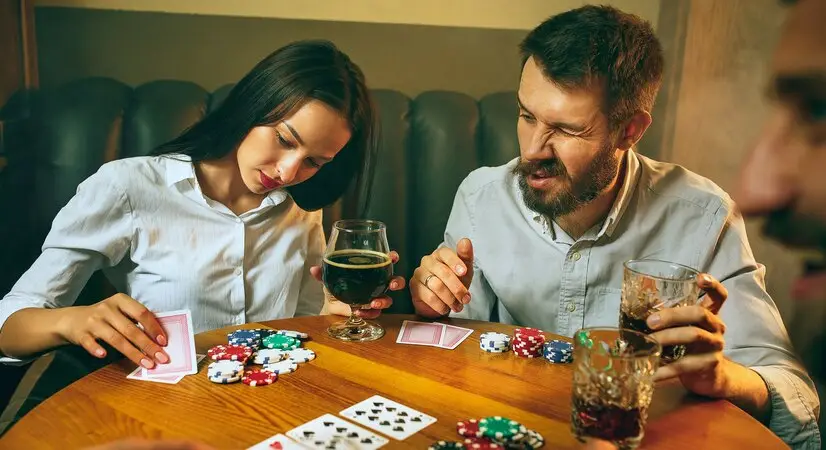What starts as a harmless way to pass the time can quickly spiral into something far more serious. Are you finding it hard to stop gambling, even when you know it’s damaging your life? Does the thrill of the game overshadow the consequences?
Gambling addiction doesn’t just affect your wallet—it impacts your relationships, your mental health, and your future. If you’ve been struggling to control your gambling, or feel like it’s taking over, you’re not alone.
In this blog, we’ll explore the signs of gambling addiction, the emotional and psychological reasons behind it, and most importantly—how to take the first step toward stopping. Plus, take our free gambling addiction test to see where you stand and whether you need support.
Contents
What Does Gambling Addiction Look Like?

Gambling addiction isn’t about how often you gamble—it’s about how it impacts your life. While occasional betting or recreational gambling can be harmless, addiction takes it to another level, affecting your emotions, relationships, and finances.
Here are some common signs of gambling addiction:
- Chasing Losses: Continuously gambling to win back money, even when it leads to deeper losses.
- Hiding or Lying: Concealing gambling activities from loved ones out of guilt or shame.
- Financial Problems: Borrowing money, draining savings, or missing bills to fund gambling.
- Inability to Stop: Trying to quit but feeling unable to resist the urge to gamble.
- Impact on Mental Health: Experiencing anxiety, depression, or stress related to gambling.
Recognizing these signs is the first step toward understanding whether gambling has become more than just a game. If any of this sounds familiar, it might be time to seek help.
Are You Addicted to Gambling? Take This Free Test Now
Not sure if your gambling habits are a problem? Our free, confidential self-assessment can help you find out.
This quick test is designed to help you reflect on your behaviors and identify whether gambling is affecting your life.
Click the link below to take the test now.
Why Is Gambling So Addictive?

Gambling starts as entertainment—a fun, exciting way to pass time. But for some, it evolves into something far more consuming. Here’s why gambling can become so addictive:
1. It Creates That Urge To Win
Every win triggers a surge of dopamine—the same “feel-good” chemical associated with pleasure. Over time, the brain craves that dopamine hit, making you want to keep playing, even when the losses pile up.
2. The Thrill of Uncertainty
The unpredictability of gambling is addictive in itself. The possibility of winning keeps your brain hooked, creating a cycle of hope and excitement, even if the losses outweigh the gains.
3. A Way to Escape Stress or Pain
For many, gambling becomes a coping mechanism. Whether it’s to deal with stress, loneliness, or unresolved emotions, the casino, app, or betting site becomes a place to escape.
4. The Illusion of Control
Gambling often makes people feel like they’re in control of the outcome. Strategies, lucky charms, or rituals create a false sense of power, keeping them invested despite repeated losses.
5. Easy Access and Triggers
With gambling apps and online casinos, the temptation is just a tap away. Ads, notifications, or even downtime can trigger the urge to play, reinforcing the habit.
How Gambling Addiction Can Affect Your Life

Gambling addiction doesn’t just stay at the casino or on your screen—it gradually seeps into every part of your life, and the consequences can be far-reaching and deeply personal.
- The most obvious impact is on your finances. Addiction can lead to drained savings, mounting debt, and even financial ruin. Borrowing money or selling possessions to fund gambling often worsens the cycle.
- The stress of addiction takes a toll on your mental health, leading to anxiety, depression, and feelings of hopelessness. Many feel trapped, unable to see a way out.
- Stress from gambling addiction often manifests physically, leading to headaches, sleep problems, or even heart-related issues caused by chronic anxiety.
- Moreover, hiding your habits, lying about losses, or neglecting responsibilities can lead to broken relationships and isolation.
- Repeated losses, coupled with guilt and shame, can erode your self-confidence, making it harder to seek help or take steps toward recovery.
Understanding these consequences is crucial. Gambling addiction isn’t just about the money lost—it’s about the life, relationships, and peace of mind that are at stake.
How to Stop Gambling: Practical Tips That Actually Work

Breaking free from gambling addiction may seem overwhelming, but small, actionable steps can help you regain control. Here are some practical tips to get started:
- Recognize and Avoid Triggers
Identify situations, emotions, or environments that make you want to gamble. Whether it’s boredom, stress, or certain social settings, staying mindful of these triggers can help you avoid them.
- Set Financial Boundaries
- Limit access to your money by handing over financial control to a trusted friend or family member.
- Use apps or services that block gambling transactions on your accounts.
- Create a strict budget and stick to it.
- Replace the Habit
- Find healthier ways to fill the time and emotional void gambling occupied:
- Exercise to release stress and build routine.
- Engage in hobbies like reading, cooking, or art to keep your mind busy.
- Join community activities to build positive social connections.
- Join a Support Group
Groups like Gamblers Anonymous (GA) connect you with others who understand what you’re going through. - Get Professional Help
Therapists specializing in treating gambling addiction can help address the root causes, manage triggers, and rebuild healthy habits.
Get Free Help For Gambling Addiction
Gambling addiction can feel isolating, but you don’t have to face it alone. If you’re struggling and feel like no one understands, MyMindMantra is here for you. We offer free, confidential support with compassionate listeners who are ready to hear you out—without judgment.
Don’t wait. Click the link, download our app, and tap on “Talk with a Listener.” It’s free, it’s easy, and it’s your first step toward feeling understood and supported.
Need professional guidance?
If gambling has affected your mental health, relationships, or well-being, let Mantra Care help you. Our licensed therapists specialize in addiction recovery and mental health support. They’ll work with you to rebuild your life and regain control.
Click here to book your trial online therapy session today.
You don’t have to carry this alone. Take the first step toward a healthier, happier future—help is just a click away.
